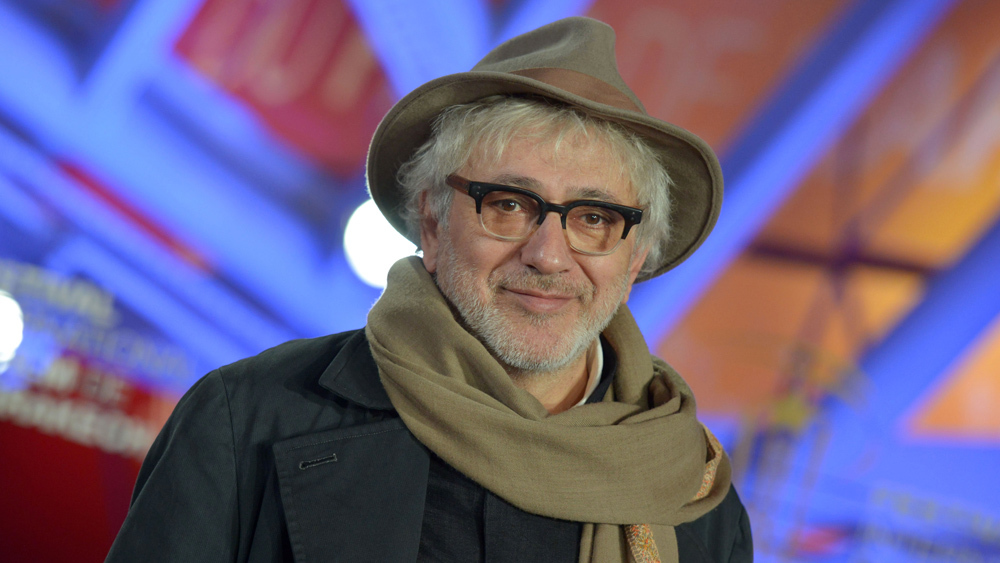Kenneth Branagh Is the Culprit in This Muddled Mystery, Great source material and a strong cast are smothered by an overeager actor-director
At a recent press screening of Murder on the Orient Express, we were told that we’d be seeing the movie in glorious 70mm, a nod to the period opulence of the film and its setting. And it was in 70mm—only the framing was off and the audio was out of sync. I wondered if maybe that was deliberate, an attempt to recreate the simpler, less reliable cinema technologies of yesteryear. But, no: it was just an unfortunate mistake, a stab at grandeur gone awry. Sadly, this would turn out to be an apt metaphor for the film, which tries for something transporting, something classic—but instead just feels kind of off.
Who’s to blame? Well, I must reluctantly turn to the film’s director and star, Kenneth Branagh, that great hammy Brit whose hamminess can be quite charming, but can also get the better of him. Here I’m afraid it’s the latter, as he—with the help of screenwriter Michael Green—turns Agatha Christie’s 1934 novel into a squishy, overblown vanity project. Branagh has cast himself as Hercule Poirot, Christie’s most enduring sleuth extraordinaire. But instead of focusing on Poirot’s uncanny observational skills and deft use of logic, Branagh highlights an emotional temper within the Belgian master investigator, a sadness and a fury that give Branagh plenty of opportunity to bellow and emote and frame himself—I mean, Poirot—as a melancholy martyr to mystery. It’s a lot, and, accidentally or not, it renders the particular case at hand flimsy and forgettable.
Which it shouldn’t be, as it’s pretty much the same knotty contraption as it is in the novel, and in Sidney Lumet’s (far superior, as I remember it) 1974 film. Some character names have been changed, and some musing on race has been added, to interesting (if glancing) effect. Otherwise, though, the clues and conspirators are familiar. The excitement of an update, then, was the promise of seeing a glittery array of the stars of today, dressed in glorious 1930s raiment and acting suspicious. What fun! Only, Branagh—who brought such lively joy to his last film directorial effort, Cinderella—seems determined to keep fun far away from this snowbound locomotive. Murder on the Orient Express is self-serious and mawkish, a tone that strikes me as antithetical to Christie’s deliciously icy mien.
It’s also no help that the train and its surrounding environments are all C.G.I., adding to the air of inauthenticity. Textured and practical was the way to go here, but Branagh, perhaps too enamored of the power of computer animation after working on Thor, or perhaps hampered by budget (though aren’t graphics like this expensive?), immerses his actors in a synthetic world. How accidentally bland it all seems, when the intent was surely for visual splendor. (Couldn’t the train just get stuck in the snow? Does it need to be on a rickety bridge atop towering mountains that look like computer wallpaper?)
Still, Branagh has done some things right. Most importantly, he’s assembled a strong troupe of actors to play the passengers of the Calais Coach. Let’s just list ‘em: Dame Judi Dench, Olivia Colman, Penélope Cruz, Leslie Odom Jr., Josh Gad, Willem Dafoe, Daisy Ridley, Michelle freakin’ Pfeiffer. (There’s also Johnny Depp, but he’s, uh, not in the movie much, if you catch my drift.) Credit also to Branagh for casting haunted-eyed ballet dancer Sergei Polunin, and letting him do a little movement work when we first meet him. It’s a starry cast, but not distractingly so. Everyone seems committed, particularly the winning Ridley and Odom Jr. It’s a good group, and all play their little parts well.
I just wish the movie gave itself more time to really sit down with them, to show us the true shape and dimensions of each player on the board. But this Murder is far too invested in Poirot’s moodiness to stay away from him for too long, a problem that steadily worsens, so that by the time the final reveal comes—the supposedly satisfying cap-off to this twisty investigation—it arrives flatly, limply. It’s hard to be all that invested in this fake-looking world when we barely know its real inhabitants. I’m not sure how to fix this problem beyond making the film longer, or perhaps devoting a little less time to busy camerawork and lingering shots of Poirot’s mustache. But the film’s core narrative has a weightlessness to it, which puts all the heavy Poirot hagiography in unflattering contrast.
Murder on the Orient Express isn’t a bore, exactly. It’s just not what it might have been had simplicity won the day instead of big intentions. I hope the film does well, because it would be nice to have a little whodunit renaissance. Ideally, though, those imagined future films would be made with less garish flourish. I’ve always enjoyed—or at least appreciated—Branagh’s flair for the dramatic. But it overwhelms this particular story, which is all about secrets contained in confined spaces. His theatrics need a wider, airier stage than this. And Christie’s characters deserve a Poirot who knows when to step back and just quietly watch.
Written by Richard Lawson, originally published in vanityfair.com






Leave A Comment
You must be logged in to post a comment.